All Stories
-

-

Prying tales from ancient DNA and a far-away moon
Exploring the DNA of ancient bones on Earth and the waters of an icy moon, Europa, could shift our views of life.
By Eva Emerson -
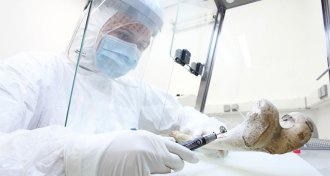 Archaeology
ArchaeologyWritten in bone
Researchers are reconstructing the migrations that carried agriculture into Europe by analyzing DNA from the skeletons of early farmers and the people they displaced.
-
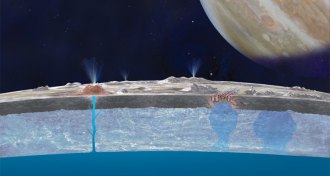 Planetary Science
Planetary ScienceThe ice of a distant moon
Jupiter’s moon Europa hides a liquid ocean, and conceivably life, under kilometers of ice. The challenge for engineers is how to penetrate that frozen barrier with technology that can be launched into space and operated remotely.
By Meghan Rosen -
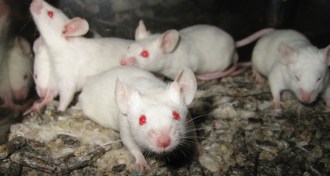 Neuroscience
NeuroscienceYou smell, and mice can tell
A new study shows that the smell of a man causes stress in lab mice. The findings show scientists have yet another variable to control: the scientist.
-
 Chemistry
ChemistryElement 117 earns spot on periodic table
Atoms jam-packed with 117 protons have been produced at a particle collider in Germany, confirming the discovery of a new element.
-
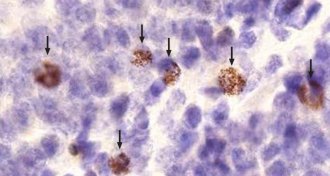 Neuroscience
NeuroscienceYoung rats that use their brain keep more cells alive
Learning a task helps just-born cells survive in a learning and memory center of the rat brain.
-
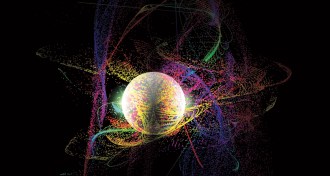
-
 Psychology
PsychologyBasketball players richly rewarded for selfishness in playoffs
Future paychecks trip up teamwork in NBA championship tournament.
By Bruce Bower -
 Animals
AnimalsSome birds adapt to Chernobyl’s radiation
Some birds seem to fare well in and near the Chernobyl exclusion zone, but overall the nuclear disaster has been bad news for the region’s bird populations.
-
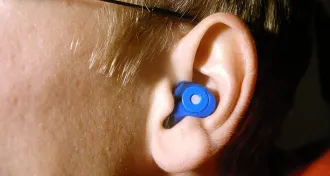 Health & Medicine
Health & MedicineMusicians have elevated risk of hearing loss
Compared to the general public, professional musicians' risk of hearing loss and ringing in the ears is higher, a new study shows.
-
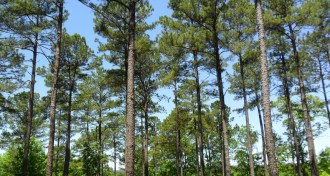 Paleontology
PaleontologyLoblolly sets record for biggest genome
At 20 billion base pairs, the loblolly pine is the largest genome sequenced to date.